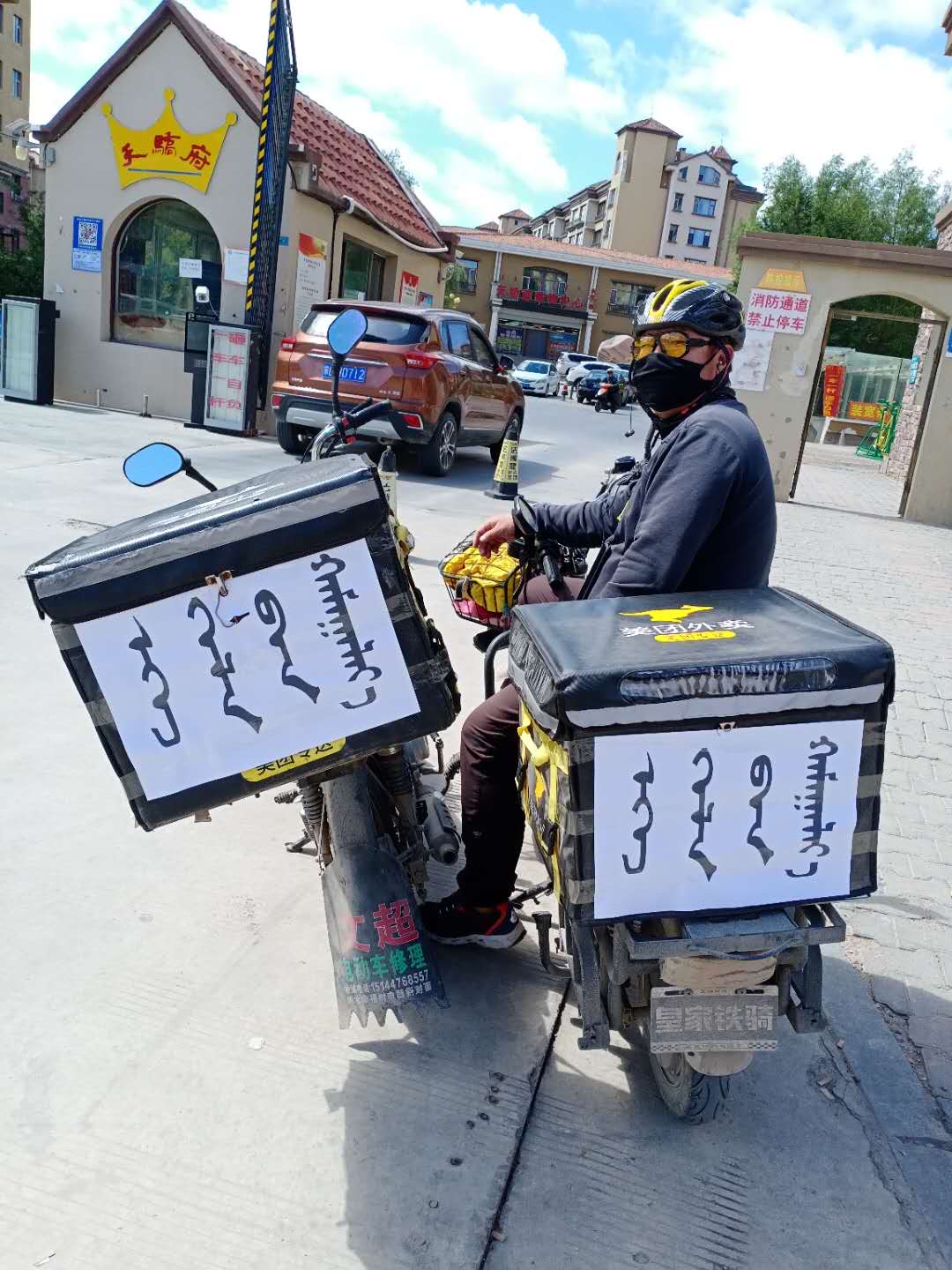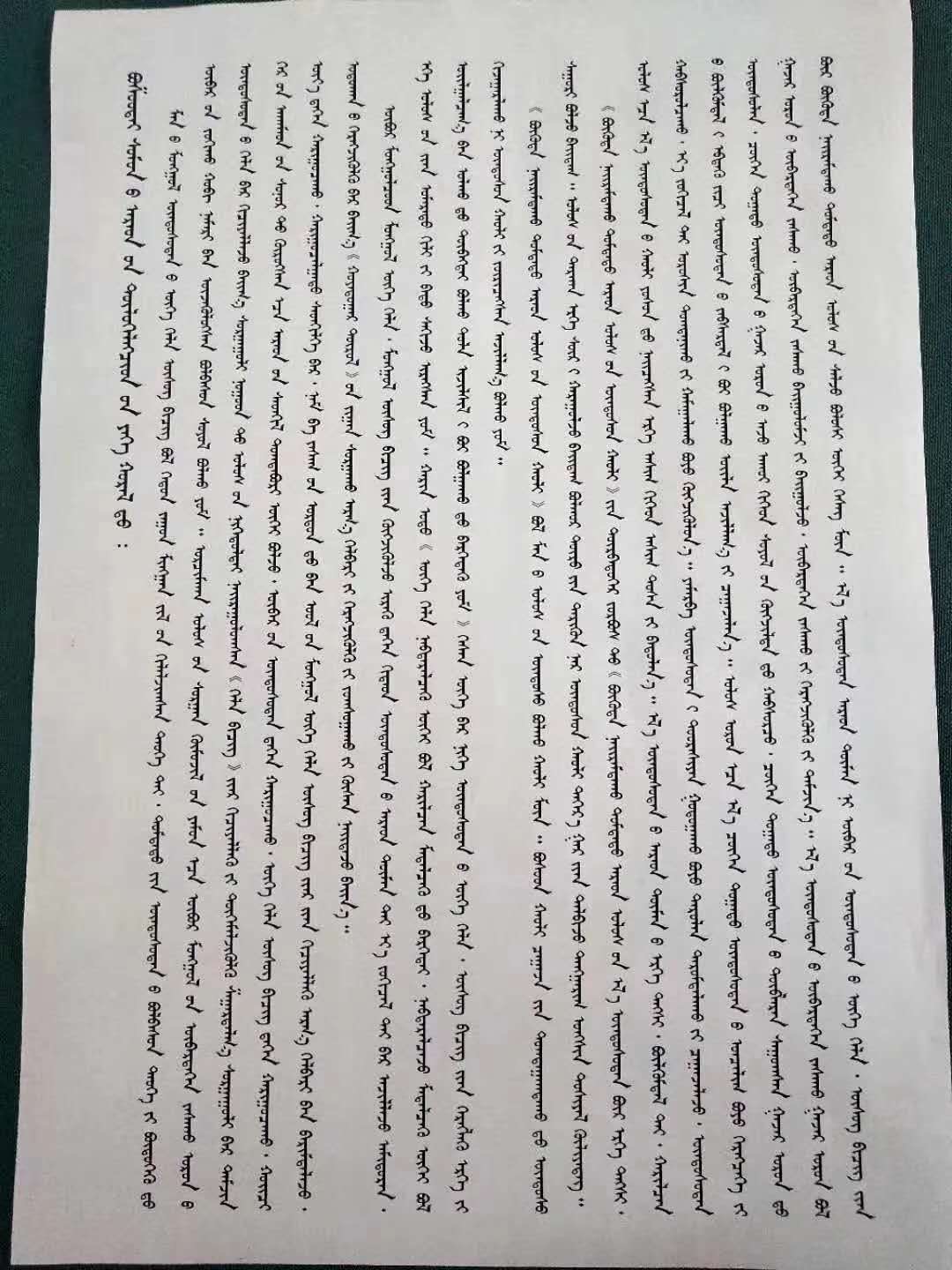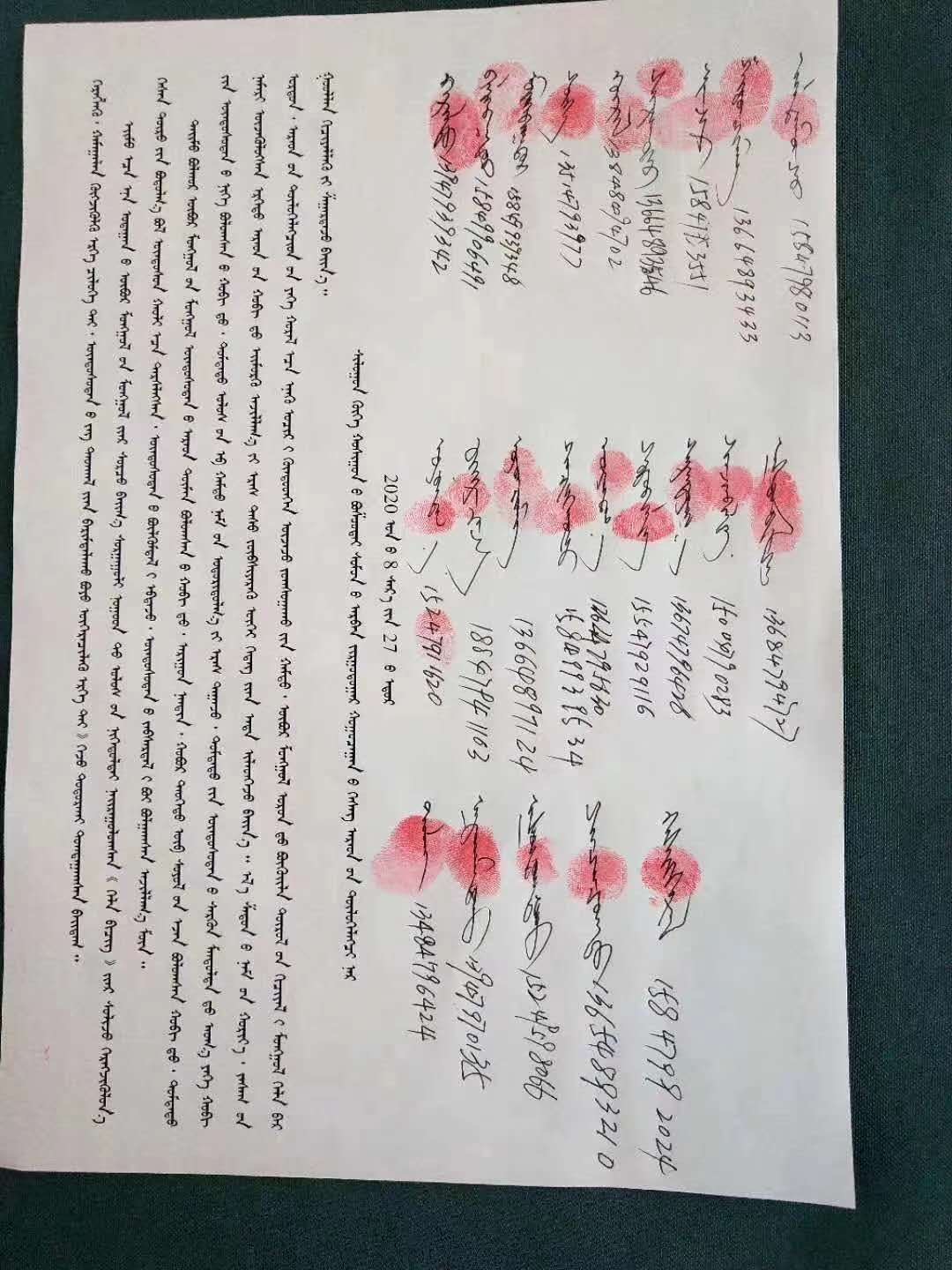Thousands of students have taken
to the streets of cities and
towns as protests spread across
Chinese-occupied Southern
Mongolia, widely known as “Inner
Mongolia” in the West as a
direct translation of the highly
Sino-centric Chinese term “nei
meng gu.”
Protesting the Chinese Central
Government’s recent decision to
replace Mongolian with Chinese
as the language of instruction
in all Mongolian schools, these
students have gathered in front
of their schools and demanded
their right to receive education
in their native language.
“Let us Mongolians strive to
defend our Mongolian culture!”
several hundred students in
school uniforms shouted in
unison in front of the main
entrance of the Naiman Mongolian
Middle School in Tongoliao
Municipality.
At the Horchin Mongolian Middle
School of Tongliao and the
Chavag Mongolian High School of
Ar-Horchin Banner, hundreds of
Mongolian students broke through
the school entrance and police
barricades to leave the schools,
where they had been confined by
the school authorities to
receive the new “bilingual
education.”
Around 3 AM local time on August
31, several hundred high school
students who were locked up in
the boarding school dormitories
of eastern Southern Mongolia’s
Ongniuud Banner broke the
lockers where their confiscated
cellular phones were kept,
contacted their parents, and
emptied the school by 5 AM.
Videos show that curfews have
been imposed for Lubei City, the
capital of the Zaruud Banner in
Tongliao Municipality, starting
the evening of August 31 local
time.
“Look at this, now. The capital
city of Zaruud Banner is under
curfew. No cars are allowed to
leave the city, no cars are
allowed in either. The whole
city is closed down,” an
eyewitness reported in a video
clip.
As the first day of the new
school year, September 1,
approaches, people from all
walks of life in Southern
Mongolia are showing an
unprecedented level of
solidarity and coordination to
continue the general
school-boycott across the
region.
In a short video, taxi drivers
from the Shiliin-gol League
stood outside their taxis and
sang the song “My Mongolia –
Steppe Mongolia”, after a widely
circulated prerecorded poem
reading “Borders cannot separate
us as long as we have our
language, hearth and livestock”
was played.
Food delivery workers in
Tongliao and Ulaanhad printed
“Save Our Mother Tongue” on the
delivery boxes on their bicycles
and scooters, showing their
support of the region-wide
language movement.
From many banners (equivalent to
counties), People’s
Representatives of Mongolian
ethnicity, mostly hand-picked by
local governments, have sent
joint petitions urging the
government to reverse the plan,
criticizing the new policy as
“an act violating the Chinese
constitutions, sabotaging ethnic
harmony, and creating national
division.”
As the tension escalates in
Southern Mongolia, citizens and
non-governmental organizations
of the independent country of
Mongolia are taking to the
streets in solidarity with their
Mongolian brothers and sisters
in Southern Mongolia and
demanding the government of
Mongolia to urge the Chinese
Government to stop this new
policy through diplomatic means.
Mr. Elbegdorj Tsakhia, former
President of Mongolia, sent out
a video statement urging the
Chinese Government to respect
the rights of Southern
Mongolians to use their native
language. The former President
also rallied Mongolians around
the world to support the
Southern Mongolian struggle to
defend their right to mother
tongue and culture.
“I strongly support the Southern
Mongolians’ movement to save the
Mongolian language. No matter
where you live, as long as you
are a Mongolian, you should join
this movement. Without Mongolian
language, there is no Mongolian
nation we can speak of. Losing
your language means losing your
head,” the former President
said. “Without your language,
what is the use of your head?
Without your writing, what is
the use of your hands?”
Visit here for more protest videos:
https://www.youtube.com/user/ovormongolmin/videos

"Save out
mother tongue"


People's
Representatives appeal to
People's National Congress





 Beyond
Great Walls: Environment, Identity, and Development on the Chinese
Grasslands of Inner Mongolia
Beyond
Great Walls: Environment, Identity, and Development on the Chinese
Grasslands of Inner Mongolia China's
Pastoral Region: Sheep and Wool, Minority Nationalities, Rangeland
Degradation and Sustainable Development
China's
Pastoral Region: Sheep and Wool, Minority Nationalities, Rangeland
Degradation and Sustainable Development The
Ordos Plateau of China: An Endangered Environment (Unu Studies on
Critical Environmental Regions)
The
Ordos Plateau of China: An Endangered Environment (Unu Studies on
Critical Environmental Regions)